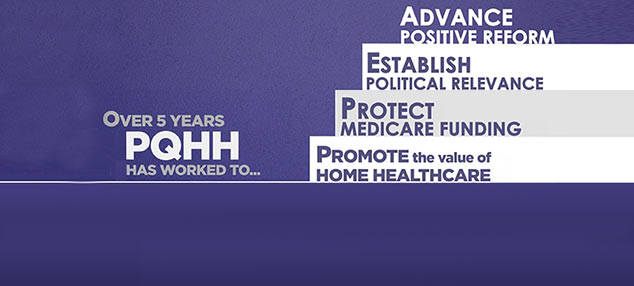Psst! Do you Know How to Stay Healthy in College?
Don't drive yourself crazy trying to figure out healthy habits during your college stay on campus. We know that classes and schedules make maintaining a healthy regimen for cooking good food and getting ample exercise difficult. But, with our practical and easy-to-follow tips and tricks, you can find ways to balance your academic responsibilities and health. These habits will help you get through college and become a part of your life long after graduation. Check out the list below. You can even print it and post it in your dorm for easy access, knowing that you're investing in your future health.
How to Stay Healthy Drives me Insane in the Membrane!
Don't reach for the straight jacket just yet. Help is only a glance away. These next few years of your life are inevitably filled with chronic stress, sleep deprivation, poor diet, and little to no exercise unless you count sprinting across campus to your next class as exercise. We've enlisted some healthy habits for college students that can help you manage your time and some healthy lifestyle tips you can carry with you after you master college chaos. What you put your body and mind through over the next 4-8 years impacts your physical and mental well-being. It is not healthy to live on Raman noodles, cold sandwiches, and beer to get you through class assignments, and if you're in any medical classes, you need to know this stuff for your patients down the road. Among the healthy tips for college students listed below, we can hook you up with a cheap paper writer for those assignment deadlines you have trouble hitting. So, stand up, stretch your legs, and grab your water. Now, sit up straight and tall for a quick 10 tips that will help keep you healthy during these stressful next few years.
Stop Pulling All-nighters- Your Dose of Healthy is Right Here
Some of the best ways to staying healthy in college are the toughest things to incorporate in your daily activities, but when you break it down into smaller pieces, it becomes more manageable. You know you need a good night's sleep and healthier food than mac and cheese. What you may not know is how to align the healthy options with your crazy class and work schedule, and we've got your health chart right here. So get your tired butt out of bed and go shower! We've got to get you in tip-top shape for the upcoming exam.
1. Pick a Schedule and Stick with it
You have a typical "daily" routine already. Now, take into consideration your class and work schedules. Sit down and decide what needs to be done before you leave your dorm room, what can get done between classes, and what can wait until your "work" day ends. If you write down your to-do list, you're more apt to keep a consistent schedule. This is a great way to build a habit and easily incorporate these tips to stay healthy. Using this as step one also helps you list other healthy lifestyle changes you can use for the rest of your life. Healthy living starts at a young age and follows you throughout the rest of your life. Whether you work in home healthcare with older people or become a resident who requires treatment, starting a healthy habit now will save your mind, body, and soul down the road.
2. Taste the Rainbow- but not in Skittles
The trick to staying healthy is to toss some color into your meals. If you live on bread and pasta, you'll lose energy and gain weight. College students like to rush around and eat out at fast food joints or grab easy-to-go meals that aren't the healthiest options. But we get it; you're on a budget and a tight schedule. So, instead of getting fries with your burger, get a side salad or some fresh fruit. Colorful foods are also brain foods, and what better muscle to build than the one getting you through exams? Even though Skittles are full of color, they are also full of sugar and dyes your body doesn't need. If you don't have time to cook your veggies, wash and cut them up, pack them in your school bag, and munch on them during the walk to your next class.
3. Ohmmm. You Have to Breathe, Baby, Breathe
Meditation is one of the best ways to stay healthy and keep your mental state of mind clear. From 18 to 88, you need to make time to relax your body and reset your mind. Meditating is a fantastic way to do both, and you can reset in as little as 5 minutes. You can do a 5-minute session before you get out of bed or sit in a quiet space before you crawl under the covers. Meditation takes many forms, such as yoga, breathing, listening to a script or the sounds of nature, or even just closing your eyes and relaxing your mind to close the world for a few minutes. Those in the healthcare profession can tell you how beneficial meditating is to relieving the day's stresses, and your mental health and clarity are crucial as you age. So, no matter how old you are, take some time and just breathe.
4. Keep Your Body Movin’ and Groovin’
Everyone knows that exercise is important, but do you know why? You release endorphins when you get your heart rate above average, which leads to burning energy and cortisol from the body. But what you may not know is that it also increases the level of serotonin and dopamine in your body. This is what people commonly refer to as a "runner's high" that athletes get. The increased brain activity caused by the chemical release is why your college brain needs to get a boost more often than it probably does now. Sure, you walk a lot from class to class, but are you increasing your heart rate enough? Boost your brain before a test by going for a brisk walk in the fresh air. You'll feel better, be able to focus on recalling information, and lower stress levels. Exercise regimes are also a great home healthcare treatment, so start your healthy habit now.
5. Consistency is Key!
If you want to build a habit and know how to stay healthy long after college, you need to be consistent with whatever you do. If you work out in the morning during the week, do it on Saturday and Sunday too. When you find a gap in your weekday routine, fill it with something similar so your brain keeps moving in a progressive way. Instead of going to class, go for a longer walk or study at the library. Just because you don't have class doesn't mean you don't shower and brush your teeth, right? Your body has a natural urge to "stay safe" and do what it knows how to do. That is why your muscles hurt after you increase weight at the gym. Your bodies will do anything you tell it to, but your mind fears the unknown.
6. Don’t Forget to Sleep!
Sleep is one of the 3 most important things your body needs in order to function properly, yet it is the one thing most college students get the least of. Whether you're cramming for that final, working late, or searching the web for "someone to write my nursing paper for me," your brain stops working right when you deprive it of rest and allow it to recover. As we get older, our sleep patterns change, but anyone in the medical field will tell you sleep is the best treatment for an injury or brain burnout. Get your 8 hours in by cutting off electronics before bed. Charge your body like you charge your laptop, and use your hour before bed to read a book, meditate, or prep for the next day. This is easier when you start with tip number 1 and schedule your daily habits, prioritizing sleep.
7. Drink Water, Drive On!
Food is important for your brain, sleep is important for recovery, and water is required for survival. Did you know that staying properly hydrated can ward off headaches? Who doesn't come out of a college class with a headache after cramming all that information in your brain? Keep a water bottle in class, and remember to drink a glass as soon as you wake up, before every meal, and before you go to sleep. Water is a great way of flushing the toxins from the body and eliminating germs and bacteria we get from everywhere we go. In the Army, they say drink water and drive on. Keeping your body fueled with water and food will keep you moving through this world longer than you think. Nurses, doctors, and treatment centers worldwide push water to every patient to help heal the body and clear the mind.
8. Keep Your Mind Sharp with Games
Not everything you make a healthy habit needs to be tedious or work. Playing mind games, doing crossword puzzles, and even writing a letter to your family back home is a great way to work the mind and keep your focus sharp. You need a strong mind to recall the research for that dissertation due next week, but you also need to relax and use other parts of your brain. For instance, when you do mundane things like shower, you are most likely using your Delta brain to think about things in the back of your mind. You don't have to think about shampooing your hair; your body does it by habit. Now, you can think of other random things that require less energy. Surprisingly, when you try not to think, you work different muscles in your brain that help sharpen your focus when you need it most.
9. It’s all about the Connection
Not everything you make a healthy habit needs to be tedious or work. Playing mind games, doing crossword puzzles, and even writing a letter to your family back home is a great way to work the mind and keep your focus sharp. You need a strong mind to recall the research for that dissertation due next week, but you also need to relax and use other parts of your brain. For instance, when you do mundane things like shower, you are most likely using your Delta brain to think about things in the back of your mind. You don't have to think about shampooing your hair; your body does it by habit. Now, you can think of other random things that require less energy. Surprisingly, when you try not to think, you work different muscles in your brain that help sharpen your focus when you need it most.
10. Keep the Recreational “Fun” to a Minimum
If you find yourself running low on energy or needing a pick-me-up after a super stressful day, don't make a habit of turning to caffeine or alcohol. Instead, limit yourself these inhibitions and keep a clear head on your shoulders. That's not to say a cup o' Joe in the morning isn't a good idea, but 4 cups downed before supper could lead to an issue. Coming down from a caffeine-induced jitter high can really dampen a study session. Alcohol is a downer that may calm you for a few hours but slowly kills those brain cells you worked so hard to strengthen with good food, water, and some mind-boggling puzzles to build your thinking muscles. Since sleep is on your list of healthy habits to create, make sure you schedule your caffeine use as far away from getting ready for bed as possible.
Remember How to Stay Healthy in College with These Tips
So now you know how to stay healthy and build habits that will keep your brain from overloading on information and your body from staying in bed all weekend. Keep the nacho chips and popcorn to a minimum, chug water instead of brewskies, and get a circle of friends who won’t text you to “write my paper for me”. If you create your healthy habits now, you'll be the one offering healthy treatment to patients after graduation instead of being wheeled around being provided home healthcare because you didn't take care of yourself.
Thank your lawmakers
- "Services that our nation's home health caregivers provide have enabled millions of our most frail and vulnerable older and disabled citizens avoid hospitals and nursing homes...."
� - More Testimonials about Home Healthcare >>
- Nation�s Home Health Leaders Commend CMS for Not Finalizing Home Health Groupings Model in Final HHPPS Rule >>
- Bipartisan Group Of House Lawmakers Ask HHS, CMS To Scrap Home Health Cuts In Final Rule >>
- Bipartisan Group of House Lawmakers Urge Administration to Not Include Proposed Home Health Groupings Model in Final Rule >>
- Thanks to You, CMS Did Not Finalize the Home Health Groupings Model!
When the Centers for Medicare & Medicaid Services (CMS) finalized the Home Health Prospective Payment System (HHPPS) Rule for CY 2018, the home health community was pleased to see that...





